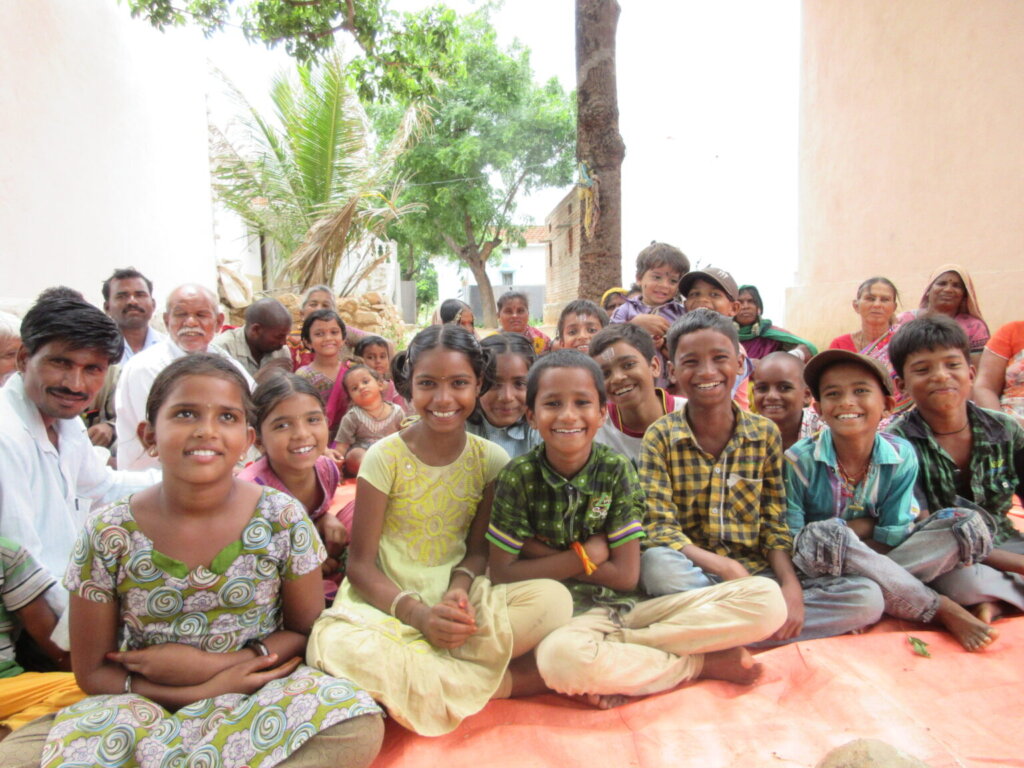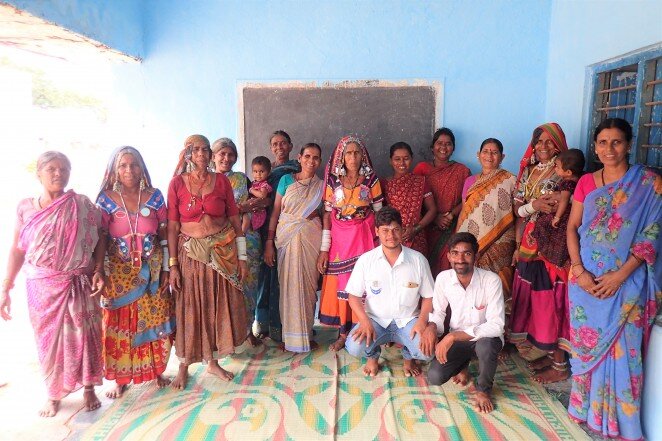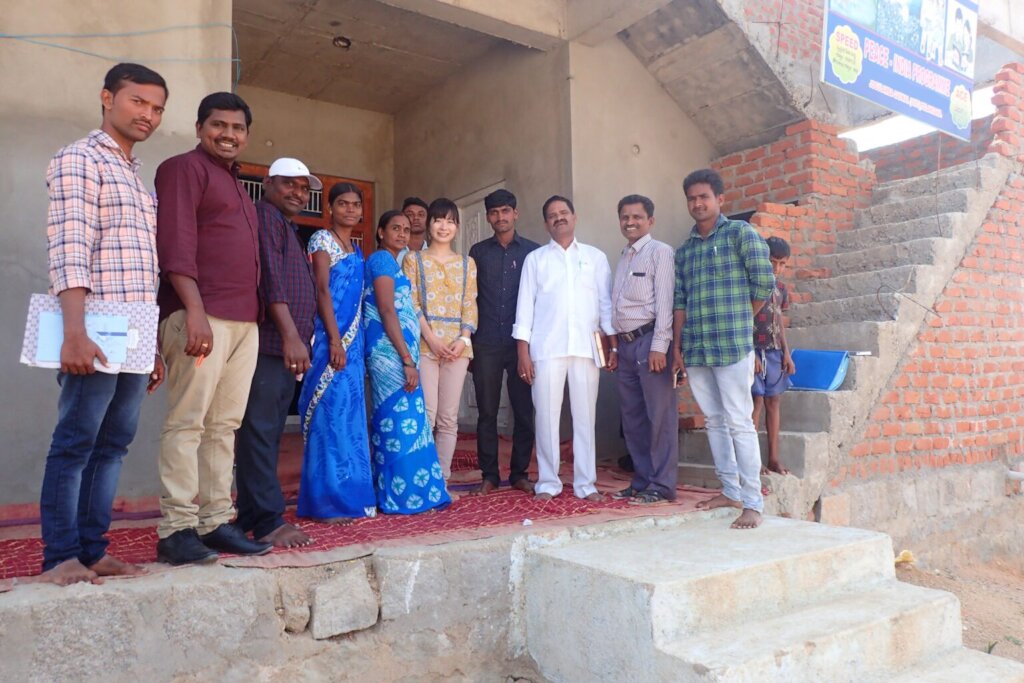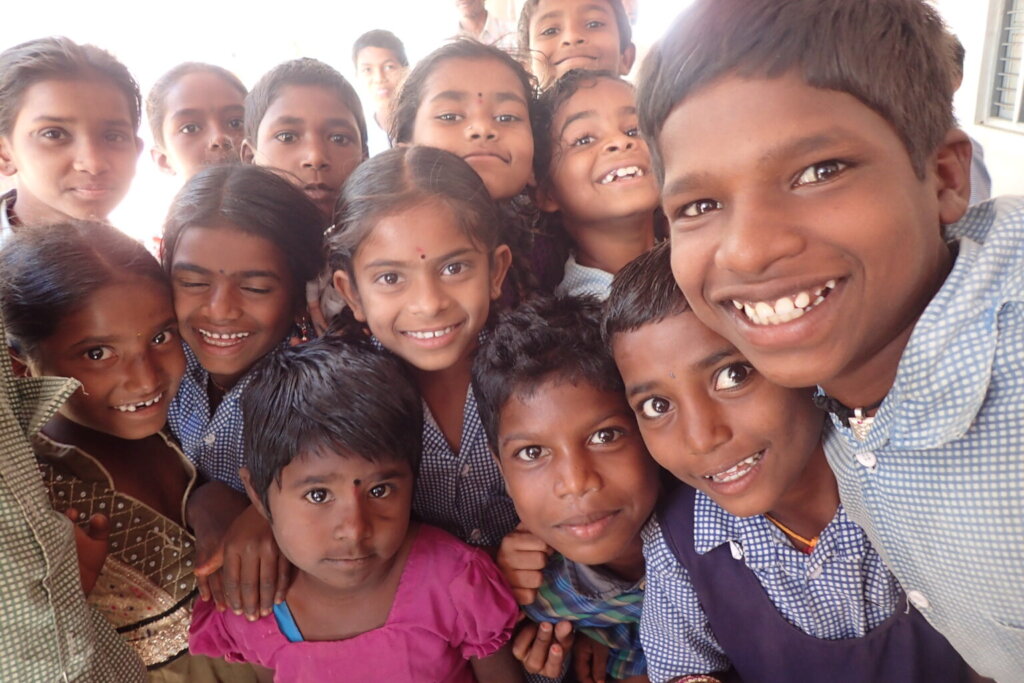By Mizuki Mori | India Project Manager
Thank you for your continuous support of ACE's activities.
The "Peace India Project," a collaborative effort with the local partner organization SPEED in the cotton-producing regions of India, concluded in August 2023. From September onwards, the local partner organization, which has been working alongside us on the project, has taken over the project's activities and is currently implementing them.
As a new initiative in India, ACE plans to launch a project aimed at creating community development in a broader area of the Telangana state, focusing on resolving child labor and safeguarding children's rights.
With the conclusion of the project in India, we will also bring this project to a close on GlobalGiving. We appreciate your interest and support for the Peace India Project. We are sincerely grateful to all our supporters who have made it possible for us to carry out our activities thus far.
If you wish to continue supporting ACE, we would be grateful if you could consider contributing to our project in Ghana.
Click here to Support ACE's Ghana Project
https://www.globalgiving.org/projects/ace-ghana/
In this last report, we will provide you with the project's history, achievements, challenges, and plans.
Background to the Peace India Project
In 2007, ACE implemented the "Child-Friendly Village Project" in India, one of the countries with particularly high child labor rates globally (2003-2013). To strategically advance international cooperation projects, ACE, based in Japan, decided to address "child labor in the cotton industry," which was close to us, and conducted information gathering and on-site surveys to understand the situation.
The findings from on-site surveys revealed economic hardships in households involved in cotton seed and cotton cultivation in the economically active southern part of India. The literacy rate was approximately 44%, indicating a delay in the spread of education. Additionally, there were deep-rooted customs of child marriages, with girls often unable to receive adequate compulsory education and working in cotton fields. There were serious cases of children becoming debt laborers to repay advances received by impoverished parents from employers. Some children also faced health hazards and even lost their lives due to the effects of pesticides used in cotton cultivation. Furthermore, it was observed that various support from the administration was not reaching those in need, and there was a lack of awareness among residents.
Therefore, the Peace India Project was initiated in collaboration with the local organization SPEED in Andhra Pradesh state (now Telangana state) to protect children from hazardous child labor in cotton-producing areas, ensuring their education, and promoting community self-sufficiency.
Project Implementation and Challenges Faced
The Peace India Project, as a community-based initiative at the village level, aimed to eliminate child labor, support children's education, and empower residents to sustainably work towards creating villages free from child labor. To achieve this, both ACE and SPEED had altered their approaches, experimenting with new strategies while continuing their previous activities more effectively.
New initiatives included the establishment and operation of facilities such as "Bridge Schools" and "Vocational Training Centers," as well as efforts to improve the income of parents to address poverty-related issues. Bridge Schools provided supplementary education for children liberated from labor to facilitate their transition to regular schools. Operating this facility incurred costs, and it was a new experience for SPEED to manage a learning support facility with a commuting system rather than dormitory-based education, making it uncertain whether children could attend consistently initially.
Different approaches were needed for girls beyond the compulsory education age, considering issues such as discrimination against girls, customs of child marriages, challenges during adolescence, and the risk of engaging in harsh labor without receiving basic education. Therefore, a "Vocational Training Center" for girls was established in the village. This was also a new attempt, and it involved trial and error while attempting to gain the understanding of residents and ensuring that it contributed to the empowerment and income improvement of girls.
While there was no direct experience in the project addressing income improvement support for parents in poverty, ACE took on the challenge, believing that alongside raising awareness among parents, addressing the poverty situation in households was one way to eliminate child labor.
Additionally, ACE leveraged its past experiences to organize and empower residents in the village, including children, women, and youth. Initiatives such as the "Child Rights Club," where children themselves developed awareness of their rights and engaged in activities for children's rights, groups for girls beyond the compulsory education age to learn about rights and life skills, women's self-help groups, and a resident volunteer group called the "Child Rights Protection Forum" were formed.
The resident volunteer group, in particular, played a significant role in daily activities such as patrolling fields, conducting home visits, and raising awareness among residents about children's rights, contributing significantly to eliminating child labor.
In addition to these activities, ACE collaborated with administrative agencies to advocate for the improvement of administrative services in education, welfare, employment, and agriculture. Strengthening the residents' capabilities to understand and utilize administrative systems was also considered crucial and addressed.
Through these activities, efforts were made to empower residents, and change their awareness and behavior collectively at the village level.
Changes in Children and Residents Due to Project Implementation
Since 2010, positive outcomes have been observed in six villages and two small settlements, mainly as of August 2023:
Furthermore, the local partner organization SPEED, through the project, strengthened its organizational foundation, gained expertise in operating with residents and administration, and grew as an independent organization. As a result, it became evident that SPEED could continue the activities of the "Peace India Project" independently after completing the phase of working with ACE.
Challenges Faced During Project Implementation
Although the project achieved the above results, child labor has not been entirely eradicated in India. According to research reports, the number of children engaged in child labor in cotton seed production areas throughout India was approximately 400,000 at the start of the project, increased to about 480,000 in 2015, and was around 350,000 in 2020.
While recognizing the achievements of the project, there is a sense of urgency that continuing the current activities may not be sufficient to achieve the goal stated in SDG 8.7, which aims to eliminate all forms of child labor globally by 2025. Despite the Telangana state government's declaration to become a "child labor-free state" in line with SDGs, concerns arise as necessary measures to eliminate child labor have not been implemented.
Therefore, ACE has decided to transition to new initiatives, leveraging its experiences in India, to ensure more children can escape child labor during their childhood.
ACE's Future Approach in India
The new project's details are currently under consideration, but the target area will continue to be Telangana state in India. ACE plans to expand activities in a broader region within the state, aiming to create communities where there is no child labor, and children's rights are protected, through the network of resident volunteer groups called the "Child Rights Protection Forum." The goal is to involve children as active participants in problem-solving, realizing a system where children's voices are reflected.
We sincerely appreciate the interest and support you have shown for the Peace India Project. We would like to thank to the support of our donors.
We would be grateful if you could continue to support ACE, especially by contributing to the project we are conducting in Ghana to solve child labor and child trafficking in the cacao-producing areas.
Click Here to Support ACE's Ghana Project
Thank you again for all your support.
Project reports on GlobalGiving are posted directly to globalgiving.org by Project Leaders as they are completed, generally every 3-4 months. To protect the integrity of these documents, GlobalGiving does not alter them; therefore you may find some language or formatting issues.
If you donate to this project or have donated to this project, you can recieve an email when this project posts a report. You can also subscribe for reports without donating.



